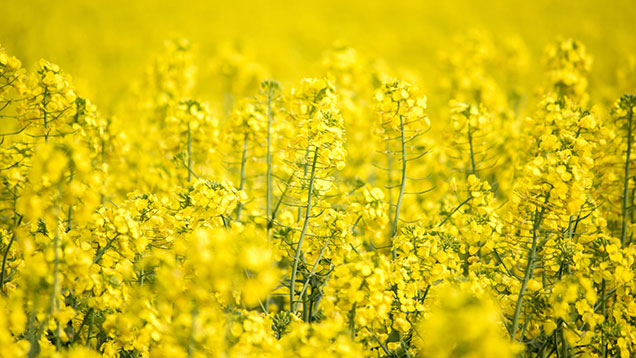NFU confirms bid for neonics ban exemption
 ©Edward Marshall/Rex
©Edward Marshall/Rex An application to allow oilseed rape growers to use neonicotinoids on oilseed rape crops has been submitted to government, the NFU has confirmed.
Farmers Weekly revealed exclusively in February that the union was encouraging agrichemical companies to apply for a derogation to enable growers to use restricted neonicotinoid seed treatments on rapeseed this autumn.
The NFU said growers across the country were continuing to suffer heavy losses amid widespread reports that cabbage stem flea beetle was decimating rape crops.
See also: What’s the plan now neonics are banned?
Growers have been forced to resort to using older, less effective chemistry like pyrethroids to tackle common crop pests on rape such as flea beetle, which have widespread resistance to these products.
NFU combinable crops board chairman Mike Hambly said it was becoming increasingly difficult for arable farmers to control problems such as flea beetle and turnip yellows virus, spread by peach potato aphids.
Growers were also dealing with the added headache of the trying to tackle many weed species, such as blackgrass, with a reduced number of products available for control – and resistance developing against those products that remain.
“The problem will only get worse if more products go, with vast ‘unintended’ consequences for farmers and wider society,” Mr Hambly warned.
NFU vice-president Guy Smith said: “Since last autumn we have heard from hundreds of our members growing oilseed rape that establishing the crop has become far more difficult and expensive, if not impossible, without neonicotinoid seed dressing.
“Because of this we want the authorities to allow farmers to use the seed treatments they need to make growing oilseed rape viable.
Similar applications are being made elsewhere in the EU and, of course, neonicotinoids continue to be used by oilseed rape growers across the world.
“One of our fundamental demands in our Healthy Harvest campaign is British farmers having the access to the same crop production toolbox as their competitors abroad.”
The European Commission issued a two-year ban on the use of three common neonicotinoid products on flowering crops, such as oilseed rape and sunflowers, after they were linked to a decline in bees.
The ban is currently under review by the commission, which will look at the effects of the moratorium and decide later in the year whether it will be extended or overturned.

